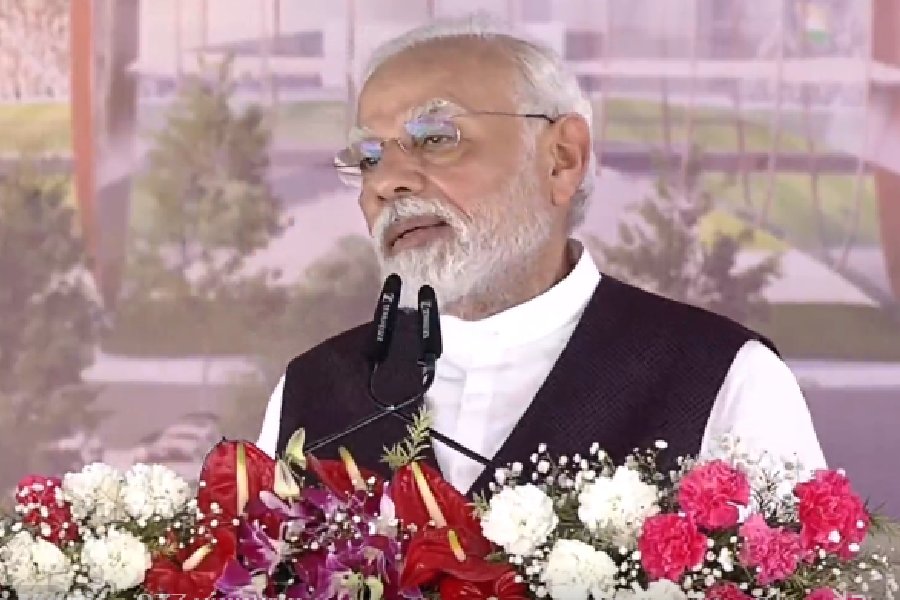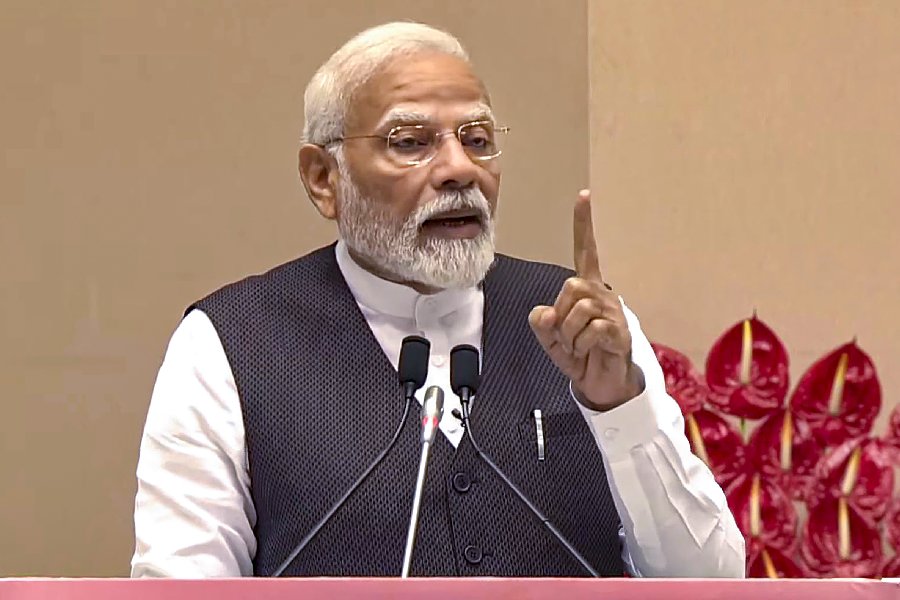The New York Times and Britain’s Financial Times have in Friday’s editions said the West has a Modi problem without a clear solution in sight, addressing an issue Western leaders have been reluctant to discuss in public.
India-Canada ties have plummeted after Prime Minister Justin Trudeau told his country’s parliament on September 18 that Canadian agencies were probing the Indian government’s role in the murder of Khalistani separatist Hardeep Singh Nijjar in the North American country in June. India has rejected Trudeau’s allegation as “absurd”.
In his column in The New York Times on Friday, two-time Pulitzer Prize winner Nicholas Kristof wrote: “The paradox is that Nijjar doesn’t seem to have been any threat to India today."
Kristof wrote: “There was a violent separatist movement supporting Khalistan in the early 1980s, and I met its leaders when I was a law student backpacking through India then and sleeping on the floor of the Sikh Golden Temple to save money. But that movement has fizzled, and the dream of Khalistan seems more alive in the Sikh diaspora than in India itself.
“If India is caught lying about its role in the killing, it will have damaged its international standing far more than Nijjar ever could have.”
Kristof, a member of America’s ruling Democratic Party, argued: “A foreign country can overcome an assassination in a Western democracy — but only if it comes clean. In 1984, gunmen in California assassinated a Taiwanese-American journalist, Henry Liu, after he wrote a critical biography of Taiwan’s dictator at the time. Taiwan eventually prosecuted a chief of military intelligence for the crime and sentenced him to life imprisonment — and Taiwan and America moved past the incident.
“In this case, though, Modi isn’t showing any sign of investigating and seems to be trying to profit politically, by inflaming the prickly nationalism that has carried his career forward so far. He portrays himself as defender of India’s Hindu majority from Muslim jihadis or Sikh separatists — or sanctimonious Western imperialists — and this dust-up might actually help him in next year’s Indian elections.”
Kristof added: “I worry that, like Pakistani Gen. Mohammad Zia ul-Haq almost half a century ago, he is unleashing religious extremism that could ultimately destabilise his country.
“India is so important that other nations will be tempted to avert their eyes and not get involved in Canada’s quarrel with Delhi. In 2018, in response to a Russian assassination on British soil, the United States expelled 60 Russians, and 14 European countries took similar steps; that won’t happen this time. But we shouldn’t give assassins a pass just because they come from a country we’re courting.”
Kristof also wrote that the allegation was an “explosive” one “that, if found to be true, should be a warning to Western countries in their dealings with Prime Minister Narendra Modi and his increasingly authoritarian government”.
He added: “This episode should be a warning to Western leaders, including President Joe Biden, who have fawned over Modi. The last couple of decades of travails with Russian President Vladimir Putin should have taught us something about the difficulties of trying to reform nationalist authoritarians or the perils of granting them impunity.”
A report in Financial Times, headlined “The West’s Modi problem”, said: “But something bigger than bilateral relations between two G20 members is now at stake: the all-in geopolitical bet the US, UK, Australia, and other countries are making on India as a democratic ally that also opposes China…. These countries have vested much of their geopolitical wager not only in India, but in the person of Modi.
“During nine years in office, Modi has built a formidable political base and sought to project greater power overseas, including in its intelligence operations. But the Indian leader and key figures in his Bharatiya Janata party have also been accused by critics both in India and abroad of stoking sectarianism, undermining India’s secular values and hindering or targeting journalists and civil society groups — actions that have led some of its partners to question its democratic standards.”
The report added: “India’s Western democratic allies have mostly kept their comments about these concerns compartmentalised — aired in brief remarks or behind closed doors — in the broader interest of a valued strategic relationship. But if Canada’s allegations of an Indian state-backed, extraterritorial assassination are found to be true, they will struggle to keep quiet.”
Nijjar, the suspected chief of the Khalistan Tiger Force — a group banned in India — was shot dead by unknown assailants near a gurdwara in Surrey, British Columbia, on June 18.
Interpol had issued a Red Notice against him in 2016, identifying him as a key conspirator in a bombing at a cinema in Punjab in 2007.


